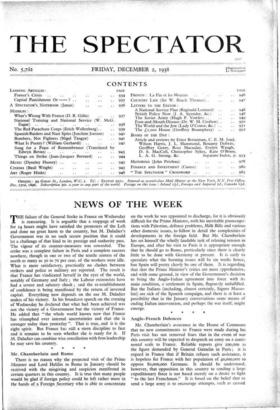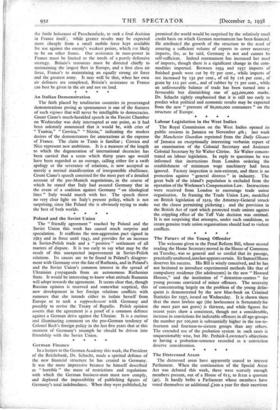Anglo-French Defences Mr. Chamberlain's assurance in the House of Commons
that no new commitments to France were made during his Paris visit has not removed fears that in the event of war this country will be expected to despatch an army on a conti- nental scale to France. Reliable reports give 200,000 as the figure demanded by General Gamelin in Paris; it is argued in France that if Britain refuses such assistance, it is hopeless for France with her population of 40,000,000 to oppose 80,000,000 Germans. It should be understood, however, that opposition in this country to sending a large expeditionary force is not based merely on a desire to fight " to the last Frenchman." It is based on the belief that to send a large army is to encourage attempts, such as caused the futile holocaust of Passchenciaele, to seek a final decision in France itself ; while greater results may be expected more cheaply from a small mobile force kept available for use against the enemy's weakest points, which are likely to be on other fronts. Our assistance in man-power in France must be limited to the needs of a purely defensive strategy. Britain's resources must be directed chiefly to maintaining the largest fleet in Europe, and a first class air force, France's to maintaining an equally strong air force and the greatest army. It may well be that, when her own air defences are completed, Britain's assistance to France can best be given in the air and not on land.



























































 Previous page
Previous page